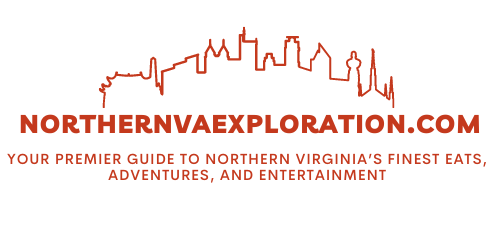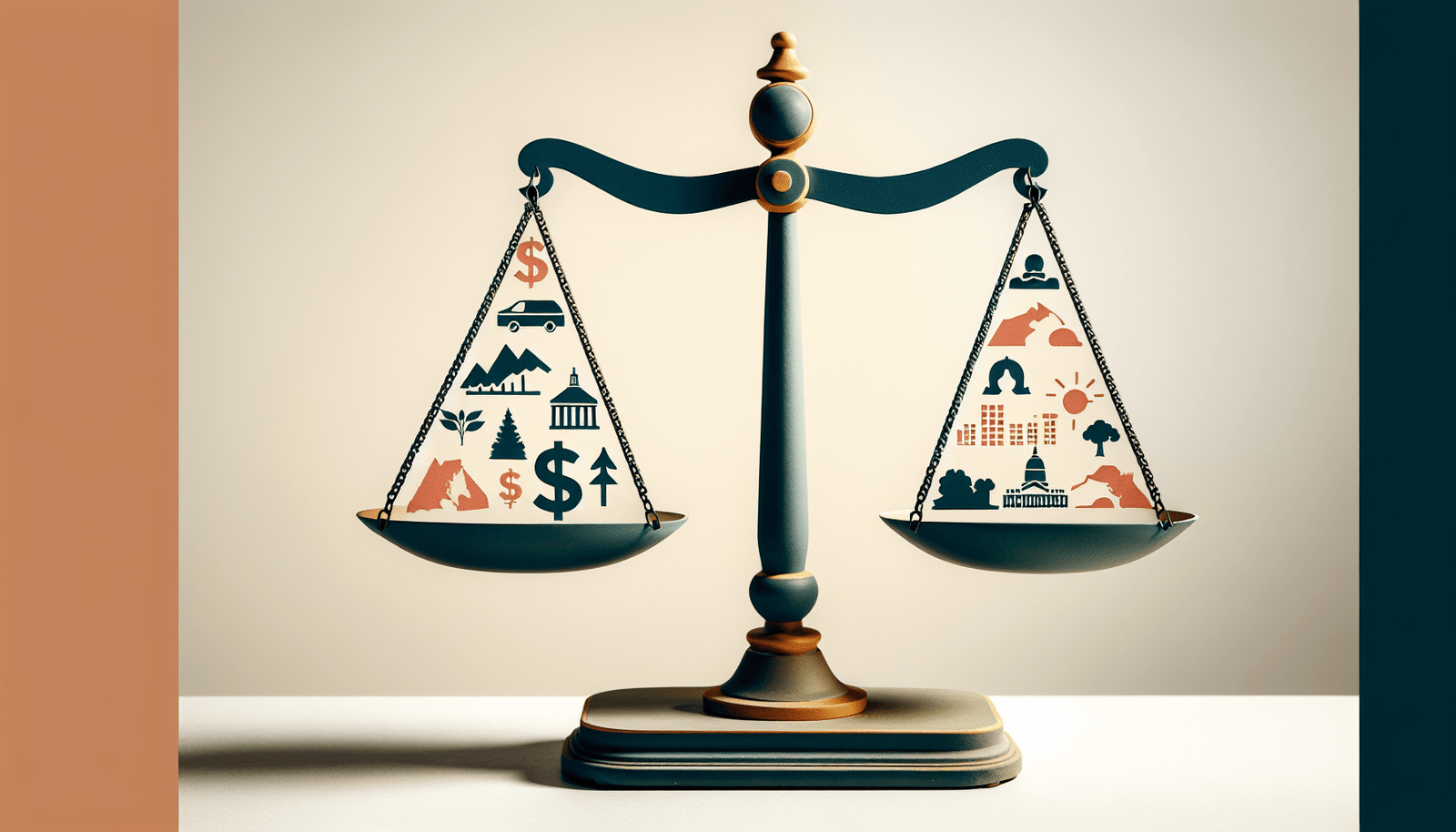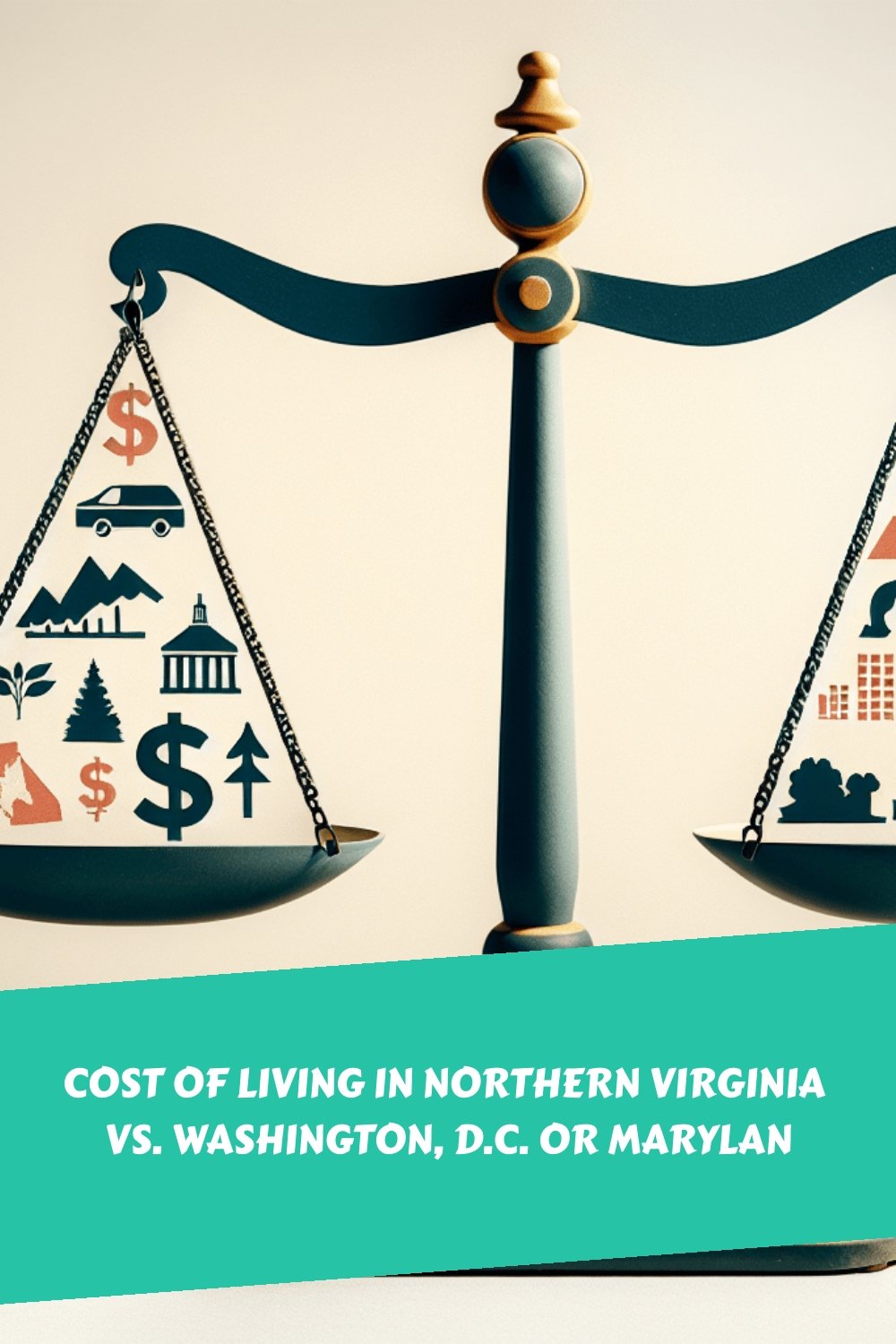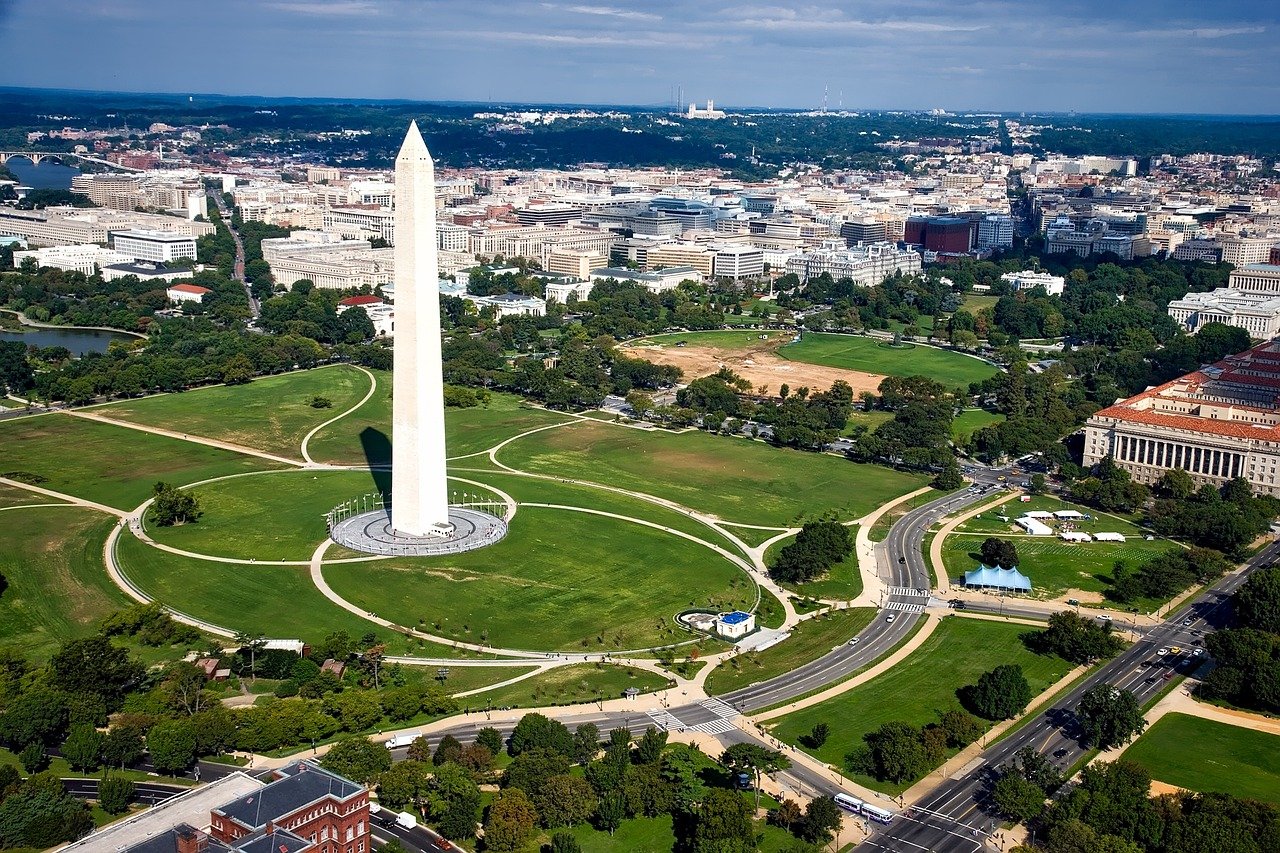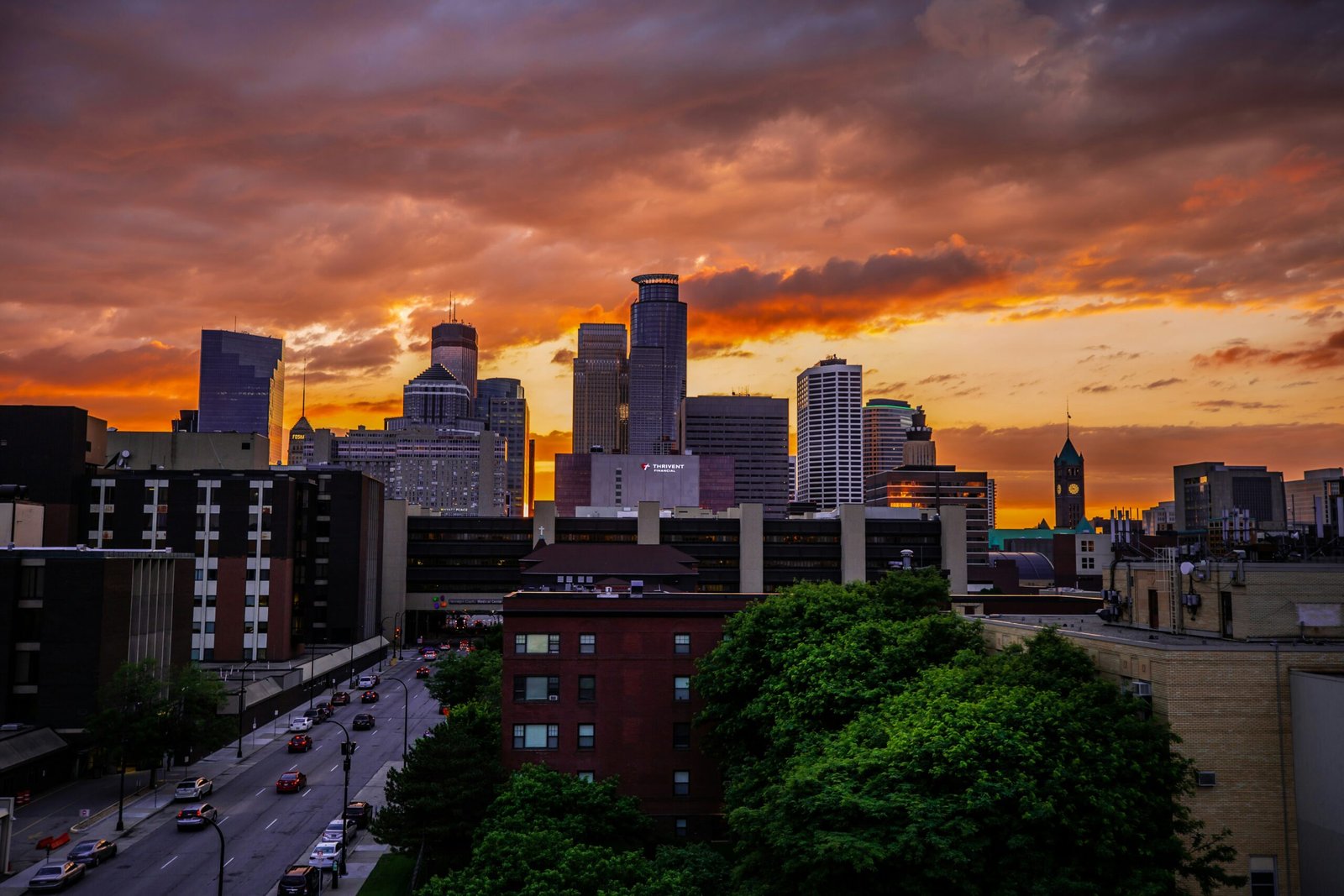Living in Northern Virginia can be an exciting prospect, especially for those who desire the opportunities of a metropolitan area without the hustle and bustle of big-city living. But before making the move, you might wonder: how does the cost of living in Northern Virginia stack up against other nearby metropolitan areas like Washington, D.C., or Maryland? In this article, I’ll explore the nuances of the cost of living in Northern Virginia, providing insights and comparisons that will help you make an informed decision about where to call home. Whether you’re a young professional, a budding family, or someone looking to retire in style, understanding the financial landscape is crucial. So, let’s dive in!

Housing
Renting in Northern Virginia
Renting in Northern Virginia can be a practical and flexible option for many individuals and families who are not ready to invest in a home or prefer the convenience of a rental property. Northern Virginia offers a diverse range of rental options, from apartments and townhouses to single-family homes. The rental market in this area tends to be competitive, and prices can vary depending on factors such as location, size, and amenities. It is essential to research different neighborhoods and evaluate your budget before making a decision.
Renting in Washington, D.C.
Renting in the vibrant city of Washington, D.C., provides a unique living experience with proximity to numerous cultural attractions, historical landmarks, and bustling city life. However, compared to Northern Virginia and Maryland, renting in Washington, D.C. tends to be more expensive due to the high demand for housing and limited availability. The rental market can be competitive, and individuals should be prepared for higher rent prices, especially in popular neighborhoods and areas close to downtown.
Renting in Maryland
Renting in Maryland offers a variety of options from suburban communities to urban centers, making it a popular choice for individuals and families seeking a balance between affordability and convenience. The cost of renting in Maryland can vary significantly depending on the location and proximity to major cities like Washington, D.C. and Baltimore. Generally, areas closer to these metropolitan areas tend to have higher rental costs, while more rural or suburban regions may offer more affordable rental options.
Home Prices in Northern Virginia
If you are considering purchasing a home in Northern Virginia, it’s essential to be aware that the housing market in this region can be competitive and prices tend to be higher compared to neighboring areas. The cost of homes in Northern Virginia can vary greatly depending on factors such as location, size, and condition. It is not uncommon for homes in desirable or well-connected neighborhoods to command a premium price. However, Northern Virginia also offers a wide range of housing options, ranging from condos and townhouses to spacious single-family homes, catering to various budget ranges.
Home Prices in Washington, D.C.
Buying a home in the dynamic and culturally rich city of Washington, D.C. offers many advantages, but it comes with a higher price tag compared to neighboring areas. The cost of homes in Washington, D.C. is generally higher due to the limited availability of land and the high demand for housing in the city. Buying a home in Washington, D.C. requires careful planning, as properties in popular neighborhoods, such as Georgetown or Capitol Hill, can be significantly more expensive compared to other areas of the city.
Home Prices in Maryland
Maryland’s housing market offers a diverse range of options that cater to different budgets and lifestyles. The cost of homes in Maryland varies depending on factors such as location, size, and proximity to major cities. Generally, areas closer to cities like Washington, D.C., or Baltimore tend to have higher home prices, while more rural or suburban regions may offer more affordable options. It’s important to consider your desired location, commute, and overall budget when looking to buy a home in Maryland.
Transportation
Public Transportation in Northern Virginia
Northern Virginia provides residents with a well-connected and extensive public transportation system. The Washington Metropolitan Area Transit Authority (WMATA) operates the Metrorail and Metrobus services in the region, offering a convenient way to commute in and around Northern Virginia. The Metrorail connects various cities and neighborhoods, while the Metrobus serves as an accessible mode of transportation with its extensive bus routes. Additionally, there are commuter rail services and ride-sharing options available, providing commuters with flexibility and convenience.
Public Transportation in Washington, D.C.
Washington, D.C. boasts an efficient and comprehensive public transportation system that is widely used by both residents and visitors. The Metrorail and Metrobus services offered by WMATA serve as the backbone of the city’s transportation network, providing easy access to various neighborhoods and attractions. The Metrorail consists of six lines that crisscross the city, making it convenient to navigate and commute. Moreover, the city is also known for its bike-sharing programs and pedestrian-friendly streets, making alternative modes of transportation popular choices for many residents.
Public Transportation in Maryland
Maryland offers a range of public transportation options that allow residents to travel conveniently within the state and beyond. The Maryland Transit Administration (MTA) operates bus services, light rail, and subway systems, providing reliable and accessible transportation options for commuters. The MARC Train, which connects Maryland to Washington, D.C., and other neighboring states, is a popular mode of transportation for individuals commuting to work in the nation’s capital. Additionally, ride-sharing services and commuter bus routes serve as alternative options for those looking for flexibility in their daily commute.
Gas Prices in Northern Virginia
Gas prices in Northern Virginia tend to be slightly lower compared to neighboring Washington, D.C., and Maryland. However, they can still fluctuate and vary depending on factors such as global oil prices and local market conditions. It is advisable to regularly monitor gas prices and plan your fuel expenses accordingly. Gas stations can be found conveniently throughout Northern Virginia, ensuring that residents have easy access to fuel for their vehicles.
Gas Prices in Washington, D.C.
Gas prices in the city of Washington, D.C. are generally higher compared to Northern Virginia and Maryland. The higher cost of gas can be attributed to various factors, including higher taxes and operating costs within the district. Residents need to account for gas prices when planning their budgets and commuting expenses. However, Washington, D.C. has an extensive public transportation system, making it possible for individuals to rely less on personal vehicles and reduce their fuel expenses.
Gas Prices in Maryland
Gas prices in Maryland typically fall between the prices in Northern Virginia and Washington, D.C. Factors such as transportation infrastructure and regional taxes can affect gas prices in different areas of the state. Residents should consider these variations when planning their budgets and account for gas expenses accordingly. Maryland is well-connected with major highways and interstates, ensuring that residents have convenient access to gas stations across the state.
Food and Groceries
Cost of Food in Northern Virginia
The cost of food in Northern Virginia can vary depending on factors such as the type of establishment, location, and individual dietary preferences. Generally, dining out in restaurants and cafes can be more expensive compared to preparing meals at home. However, Northern Virginia offers a wide variety of dining options, ranging from affordable neighborhood eateries to high-end restaurants. Grocery prices in the area also vary, and residents can choose from a range of supermarkets and specialty stores to suit their preferences and budgets.
Cost of Food in Washington, D.C.
Food prices in the vibrant city of Washington, D.C. can be higher compared to Northern Virginia and Maryland, driven by factors such as higher operating costs and demand. Dining out in popular neighborhoods and areas close to downtown can be more expensive, while more affordable options can be found in less touristy areas. Additionally, grocery prices in Washington, D.C. may also be slightly higher compared to neighboring areas. However, the city offers a diverse culinary scene with a plethora of restaurants, cafes, and markets catering to different tastes and budgets.
Cost of Food in Maryland
Maryland offers a range of food options at varying price points to suit different budgets. The cost of dining out and buying groceries in Maryland can differ based on factors such as location and type of establishment. Urban areas and popular tourist destinations may have higher food prices, while more suburban regions offer more affordable options. The state is known for its seafood and locally sourced produce, providing residents with access to fresh and delicious food at reasonable prices.
Grocery Prices in Northern Virginia
Grocery prices in Northern Virginia can vary depending on factors such as the supermarket chain, location, and individual purchasing preferences. The region offers a wide variety of grocery stores, ranging from large chain supermarkets to smaller specialty markets. I would recommend that residents take account of grocery shopping lists and compare prices across different stores to find the best deals and maximize their budgets. Taking advantage of weekly deals, coupons, and loyalty programs can also help save money on groceries in Northern Virginia.
Grocery Prices in Washington, D.C.
Grocery prices in Washington, D.C. tend to be higher compared to Northern Virginia and Maryland, primarily due to factors such as higher operating costs and limited competition. Residents have access to a range of grocery stores, both large chains and smaller specialty markets, but should be prepared for slightly higher prices compared to neighboring areas. Planning meals, creating shopping lists, and taking advantage of discounts and promotions can help residents manage their grocery budgets effectively.
Grocery Prices in Maryland
The cost of groceries in Maryland varies depending on factors such as location, supermarket chain, and the type of food being purchased. Maryland offers a mix of supermarket chains, specialty stores, and farmers’ markets, which can provide residents with a range of options at different price points. Shopping at local farmers’ markets can be an excellent way to support local producers and access fresh produce at competitive prices. Residents should compare prices across different stores and consider meal-planning strategies to make the most of their grocery budgets.
Utilities
Electricity Rates in Northern Virginia
Electricity rates in Northern Virginia can vary depending on factors such as the utility provider, electricity consumption, and time of use. Consumers have the option to choose from various energy suppliers, allowing them to compare rates and find the most affordable option for their specific needs. Additionally, energy-efficient practices such as using energy-saving appliances and managing consumption during peak hours can help lower electricity bills. It is advisable to research different providers and their pricing structures to make an informed decision regarding electricity in Northern Virginia.
Electricity Rates in Washington, D.C.
Electricity rates in Washington, D.C. tend to be higher compared to Northern Virginia and Maryland. The increased cost of electricity can be attributed to factors such as higher taxes and operational expenses within the district. Residents of Washington, D.C. should consider energy-saving practices and explore different providers to find the most cost-effective option for their electricity needs. Additionally, installing energy-efficient appliances and implementing conservation measures can help reduce electricity consumption and lower bills over time.
Electricity Rates in Maryland
Maryland has a deregulated electricity market, meaning residents have the option to choose their energy supplier and rates. Electricity rates in Maryland can vary depending on factors such as location, supplier, and specific pricing plans. Consumers in the state can research different providers, compare rates, and select the most affordable option for their household. Additionally, implementing energy-saving measures and using energy-efficient appliances can help reduce electricity consumption and lower overall costs.
Water and Sewer Rates in Northern Virginia
Water and sewer rates in Northern Virginia can vary depending on factors such as the specific utility provider, consumption, and local regulations. Residents typically receive water and sewer bills from their local government or water authority. It is advisable to review the billing structure and pricing policies of the specific provider and explore any available water conservation programs. Conserving water through practices such as fixing leaks and using water-efficient fixtures can help residents reduce their overall water and sewer costs.
Water and Sewer Rates in Washington, D.C.
Water and sewer rates in Washington, D.C. are regulated by the District of Columbia Water and Sewer Authority (DC Water). The cost of water and sewer services is based on factors such as consumption and local regulations. Residents of Washington, D.C. should review their billing statements and familiarize themselves with the rates and fees associated with water and sewer services. Implementing water-saving measures such as using low-flow fixtures and practicing efficient watering techniques can help residents lower their water consumption and manage their bills effectively.
Water and Sewer Rates in Maryland
Water and sewer rates in Maryland vary depending on the specific utility provider and local regulations. Residents generally receive water and sewer bills from their respective county or city government. It is advisable to review the billing structure and pricing policies of the provider and explore any available water conservation programs. Conserving water through practices such as water-efficient landscaping and fixing leaks can help residents reduce their overall water and sewer costs in Maryland.

Entertainment
Movie Ticket Prices in Northern Virginia
Movie ticket prices in Northern Virginia can vary depending on factors such as the theater chain, location, and time of movie screenings. In general, movie ticket prices in the region are comparable to national averages, with discounts and promotions available for matinee or weekday showings. Some theaters may offer premium services, such as reserved seating or IMAX screens, which could come at an additional cost. It is advisable for moviegoers to compare ticket prices across different theaters and consider any available discounts to enjoy a cost-friendly entertainment experience.
Movie Ticket Prices in Washington, D.C.
Movie ticket prices in Washington, D.C. can vary depending on factors such as the theater chain, location, and movie showtimes. The city offers a wide variety of theaters, ranging from independent cinemas to large multiplexes. Prices for movie tickets in Washington, D.C. may be slightly higher compared to national averages due to the higher cost of living in the city. However, discounts and promotions are often available, particularly for matinee or weekday showings. Movie enthusiasts should compare ticket prices, explore different theaters, and take advantage of any available discounts to enjoy an affordable movie experience in Washington, D.C.
Movie Ticket Prices in Maryland
Movie ticket prices in Maryland are generally on par with national averages, with variations based on factors such as the theater chain, location, and time of movie showings. The state offers a diverse range of movie theaters, ranging from small independent cinemas to large multiplexes. Prices may vary slightly depending on the location, but discounts and promotions are often available for matinee or weekday screenings. Moviegoers should compare ticket prices, consider different theaters, and make use of available discounts to enjoy an economical movie experience in Maryland.
Restaurant Costs in Northern Virginia
Restaurant costs in Northern Virginia can vary depending on factors such as the type of cuisine, location, and dining experience. The region offers a diverse range of dining options, from casual eateries to fine dining establishments. Prices for meals can range from budget-friendly to higher-end depending on the restaurant. Diners should explore different establishments, review menus, and consider specials or prix fixe options to find the best value for their dining experience.
Restaurant Costs in Washington, D.C.
Restaurant costs in Washington, D.C. can be slightly higher compared to neighboring areas due to the city’s vibrant dining scene and higher operating costs. Washington, D.C. offers an array of dining options, ranging from food trucks and casual eateries to Michelin-starred restaurants. Prices for meals can vary depending on the establishment and type of cuisine. Diners should consider the menu prices, explore different neighborhoods, and take advantage of happy hour or lunch specials to enjoy a cost-friendly dining experience in Washington, D.C.
Restaurant Costs in Maryland
Restaurant costs in Maryland can vary depending on factors such as the type of cuisine, location, and dining ambiance. The state offers a range of dining options catering to different tastes and budgets. Prices for meals can range from affordable to high-end depending on the restaurant. Exploring diverse neighborhoods and establishments, checking online menus, and considering any available discounts or promotions can help residents enjoy a delicious meal while managing their dining expenses in Maryland.
Taxes
Income Taxes in Northern Virginia
Income taxes in Northern Virginia are primarily managed by the Commonwealth of Virginia. The state employs a progressive income tax system, with tax rates increasing along with individuals’ income levels. Residents of Northern Virginia should consult with a tax professional or refer to the Virginia Department of Taxation for specific information regarding income tax rates and filing requirements. Deductions, exemptions, and credits may also apply, so individuals should consider taking advantage of available tax incentives to minimize their overall tax liability.
Income Taxes in Washington, D.C.
Income taxes in Washington, D.C. are collected by the District of Columbia Office of Tax and Revenue. The district utilizes a progressive income tax system, meaning tax rates increase as individuals’ income levels rise. Residents of Washington, D.C. should consult with a tax professional or refer to the official tax authorities for specific information regarding income tax rates, deductions, and filing requirements. Exploring available tax credits and deductions can help individuals lower their overall tax burden and maximize their after-tax income.
Income Taxes in Maryland
Income taxes in Maryland are collected by the state’s Comptroller of Maryland. The state employs a progressive income tax system, with tax rates varying based on individuals’ income levels. Residents of Maryland should consult with a tax professional or refer to the state’s official tax authorities for specific information regarding income tax rates, deductions, and filing requirements. Taking advantage of available tax credits, exemptions, and deductions can help individuals minimize their income tax liability and enhance their financial situation.
Property Taxes in Northern Virginia
Property taxes in Northern Virginia are collected by local governments, including counties and independent cities. The specific property tax rates and assessments can vary depending on the jurisdiction. Property taxes in Northern Virginia are typically based on the assessed value of the property and are used to fund local government services, such as schools and infrastructure. Residents should consult with the local government or tax authorities to understand the property tax rates applicable to their specific location.
Property Taxes in Washington, D.C.
Property taxes in Washington, D.C. are collected by the District of Columbia Office of Tax and Revenue. The property tax rate in the district is determined by a combination of factors, including the assessed value of the property and the property classification. Residents of Washington, D.C. should consult with the Office of Tax and Revenue or the official tax authorities for specific information regarding property tax rates and assessment procedures. Understanding property tax regulations and exploring available exemptions or deductions can help residents manage their property tax expenses in the district.
Property Taxes in Maryland
Property taxes in Maryland are primarily collected by local governments, such as counties and municipalities. The specific property tax rates and assessment procedures can vary depending on the location. Property taxes in Maryland are generally calculated based on the assessed value of the property and are used to support local government services. Residents should consult with the local government or tax authorities to understand the property tax rates applicable to their specific location and explore any available exemptions or appeals processes to manage their property tax expenses.
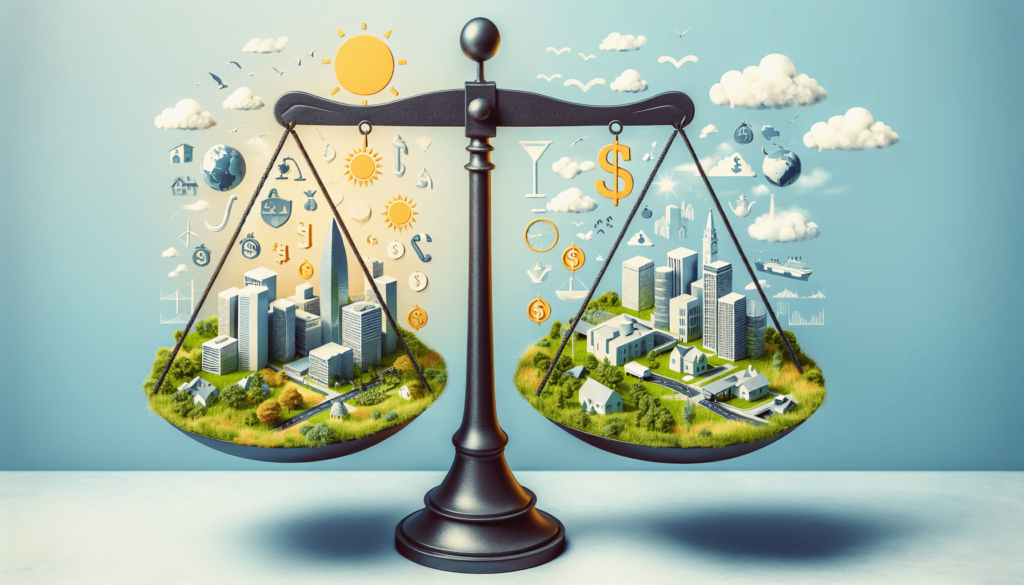
Employment
Job Opportunities in Northern Virginia
Northern Virginia offers a wide range of job opportunities in various industries, including technology, government, healthcare, and defense contracting. The region is home to numerous Fortune 500 companies, government agencies, and a growing startup ecosystem. Job seekers in Northern Virginia can benefit from the proximity to Washington, D.C., which hosts a multitude of federal agencies and headquarters of major organizations. The diverse job market provides individuals with options ranging from entry-level positions to high-paying executive roles. Networking, job boards, and professional associations are valuable resources for individuals seeking employment in Northern Virginia.
Job Opportunities in Washington, D.C.
Washington, D.C. offers a robust job market with opportunities in government, law, non-profit organizations, consulting, and professional services. The city is the hub of federal government operations, hosting numerous government agencies, embassies, and international organizations. Washington, D.C. is also home to major law firms, think tanks, and lobbying organizations. Furthermore, the city has a thriving hospitality and tourism industry. Job seekers in Washington, D.C. can find positions ranging from entry-level to senior management, leveraging the city’s diverse employment landscape.
Job Opportunities in Maryland
Maryland provides a diverse range of job opportunities in fields such as technology, healthcare, education, research, and government contracting. The state’s proximity to Washington, D.C. and its robust private and public sectors contribute to a vibrant job market. Maryland is home to major defense contractors, healthcare organizations, research institutions, and renowned universities. Individuals seeking job opportunities in Maryland can explore online job portals, attend career fairs, and leverage professional networks to access a wide range of employment options across various industries.
Average Salaries in Northern Virginia
Average salaries in Northern Virginia tend to be higher compared to national averages due to the concentration of high-paying industries such as technology and defense contracting. The region offers a range of job opportunities, starting from entry-level positions with competitive wages to executive-level roles with attractive compensation packages. Salaries can differ significantly depending on factors such as experience, education, industry, and company size. Individuals should research industry-specific salary ranges and cost of living in Northern Virginia to negotiate appropriate compensation packages.
Average Salaries in Washington, D.C.
Average salaries in Washington, D.C. tend to be higher compared to national averages, reflecting the city’s concentration of high-paying industries such as government, law, and consulting. Washington, D.C. offers a diverse range of job opportunities, with competitive wages available across various sectors, including technology, finance, healthcare, and non-profit organizations. The city is also known for its high demand for highly skilled professionals, resulting in attractive compensation packages. Individuals should research industry-specific salary ranges and cost of living in Washington, D.C. to negotiate appropriate compensation packages.
Average Salaries in Maryland
Average salaries in Maryland vary depending on factors such as industry, occupation, and location within the state. Maryland’s employment landscape spans diverse sectors, including technology, healthcare, education, government, and defense contracting. The state offers competitive wages across various professional levels, with opportunities for career growth. Average salaries can differ significantly between industries and regions within Maryland. Job seekers should research industry-specific salary ranges and consider the cost of living in Maryland to ensure their compensation aligns with their qualifications and responsibilities.
Quality of Life
Crime Rates in Northern Virginia
Northern Virginia generally enjoys lower crime rates compared to neighboring areas such as Washington, D.C. and certain parts of Maryland. The region has well-maintained neighborhoods with good community networks, contributing to a safer living environment. Residents can access information on crime rates and safety initiatives from local law enforcement agencies and community organizations. Individuals should research crime statistics, practice common-sense safety measures, and stay informed about neighborhood watch programs to maintain a high quality of life and promote community well-being.
Crime Rates in Washington, D.C.
Washington, D.C. has experienced higher crime rates compared to some neighboring areas; however, the city has made significant progress in reducing crime in recent years. D.C. Metropolitan Police Department and other law enforcement agencies work diligently to ensure the safety of residents and visitors. Individuals should research crime statistics, stay informed about safety initiatives, and practice basic personal safety measures when living in or visiting Washington, D.C. Engaging with community organizations and participating in neighborhood watch programs can also help promote a safer environment.
Crime Rates in Maryland
Crime rates in Maryland can vary depending on the specific location and neighborhood. While certain areas may experience higher crime rates, the state has implemented initiatives to enhance public safety and reduce criminal activities. Residents should research crime statistics, stay updated on local law enforcement efforts, and engage with community organizations to promote well-being and maintain a high quality of life. Practicing basic personal safety measures and participating in neighborhood watch programs can contribute to a safer living environment in Maryland.
Outdoor Recreation in Northern Virginia
Northern Virginia offers a plethora of outdoor recreational opportunities, allowing residents to enjoy the region’s natural beauty and diverse landscapes. The area boasts numerous parks, hiking and biking trails, waterfronts, and recreational centers. Residents can explore various outdoor activities such as hiking, biking, boating, fishing, and picnicking all within close proximity to their homes. The region’s mild climate enhances the outdoor experience, making it an inviting destination for individuals seeking an active and nature-oriented lifestyle.
Outdoor Recreation in Washington, D.C.
Despite being a bustling metropolitan area, Washington, D.C. offers ample opportunities for outdoor recreation and relaxation. The city is home to numerous parks, green spaces, and national landmarks that residents and visitors can explore. Residents can enjoy activities such as walking, running, biking, and picnicking in parks like Rock Creek Park, Meridian Hill Park, and the National Mall. Additionally, the city hosts annual outdoor events and festivals that celebrate nature and promote community engagement. The combination of urban amenities and accessible green spaces makes Washington, D.C. an appealing destination for outdoor enthusiasts.
Outdoor Recreation in Maryland
Maryland provides an abundance of outdoor recreational opportunities, spanning diverse landscapes from the Chesapeake Bay to the Appalachian Mountains. The state offers numerous parks, forests, and waterfront areas, allowing residents to engage in activities such as hiking, biking, fishing, boating, and camping. Maryland’s proximity to the Chesapeake Bay provides opportunities for water sports and maritime activities. Residents can explore outdoor destinations such as Assateague Island National Seashore, Deep Creek Lake, and Catoctin Mountain Park. Maryland’s commitment to preserving natural spaces ensures that residents have access to a wide range of outdoor recreation options.
